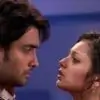Bengali New Year Celebrations and Rituals
Usually on the day of Poila Baishakh, the houses are cleaned and sometimes painted. People take early bath and put in their best dresses. Much of the day is spend by paying a visit to relatives, friends and neighbors. Special food items are prepared on this special occasion of the Bengali New Year. Queues of devotees can be seen at the Kalighat temple where they wait to offer their pujas and prayers and receive blessings from God.On the Poila Boishakh day, people gather in the morning to have a look at the sunrise since this is considered to be sacred. Songs ushering the New Year are performed by the singers. Bengalis can be seen in their tradition attire. While the young ladies wear saris, the boys put on Kurta Pyajama or dhotis. There is also an age-old tradition of starting the day by having a breakfast consisting of panta bhat (soaked rice) along with onion, green chillies, and fried Hilsa fish.
Lord Ganesha and Goddess Laxmi are worshiped on this day by people, wherein they pray for health, longevity and the well-being of the family members. Offering prayers to the clouds for water is yet another famous ritual that takes place in the Bengali New Year. On this day, people are required to clear off all the dues and loans. The Bengali New Year or Nabo Borsho is the day to buy and prepare new account books by the Bengali businessmen. It is known as Haalkhata.
In several parts of the state Boishakhi fairs are organized, the most popular among them being the Bangla Sangit Mela at Nandan-Rabindra Sadan ground held by the West Bengal Government! Different agricultural products, toys, cosmetics, traditional handicrafts, different food items and sweets are sold at the Boishakhi fairs. The fairs are also a source of entertainment for the people various kinds of cultural programs taking place such as dancing, singing, drama, jatra, pala gan, jarigan, gambhira gan, kobigan, gazir gan and alkap gan. Folk songs, baul, murshidi, marfati and bhatiali songs are also performed by artists. Narrative plays such as Yusuf-Zulekha, Laila-Majnu and Radha-Krishna are also staged on this festive occasion. Nabo Barsho poems are recited as a part of the Bengali New Year celebrations. Merry-go-rounds and puppet shows are among the other popular attractions of these fairs.
Dhaka along with other regions in Bangladesh also takes part in the New Year celebrations with all interest and excitement. Numerous people assemble early in the morning at Ramna Park in Dhaka where the Chhayanat artists give a beautiful start to the day with Rabindranath Tagore's songs. Ceremonies welcoming the Nabo Borsho also take place at the Institute of Fine Arts, University of Dhaka. Parades and colorful processions are organized by the students and the teachers, at the campus. Different types of cultural and social programs are organized throughout the day, which are also broadcasted on radio and television.
Bengali New Year Significance
For the Bengalis, the significance of the Bengali New Year is surely great! This occasion and in fact the whole month of Baishakh is considered very auspicious for events like marriages. Further, this is the day when people pray for the well being and prosperity of their dear ones. The day is a cultural, social and literary feast for the Bengalis.This day is also considered auspicious for starting new ventures and businesses. All business activities in the state of Bengal commences on the day of Poila Baishakh. New account books are purchased by the Bengali business men and traders. After the puja, entry in the account books start. Mantras are also chanted on the festival of Poila Baishakh.
The historical significance of the Bengali New Year in Bangladesh dates back to the year 1965 when the day was observed by the Chhayanat. The then Government of Pakistan tried to suppress the Bengali culture by putting a ban on Rabindranath Tagore's poems and songs. The Chhayanat however, protested against this move by opening up their Bengali New Year celebrations at Ramna Park with nothing but the same songs and poems by Tagore. In East Pakistan, this day continued to be observed as a symbol of Bengali culture. Following the year 1972, this came to be observed as a national festival.
Presently, Pohela Boishakh or Bengali New Year stands for cultural unity where there is no distinction made on the basis of religion, class or caste. Poila Boishakh is all about spreading love and happiness, gift-giving and praying for each other's well being and prosperity. Unlike some other festivals, the Bengali New Year is more about simple celebrations of the rural roots of West Bengal.


































